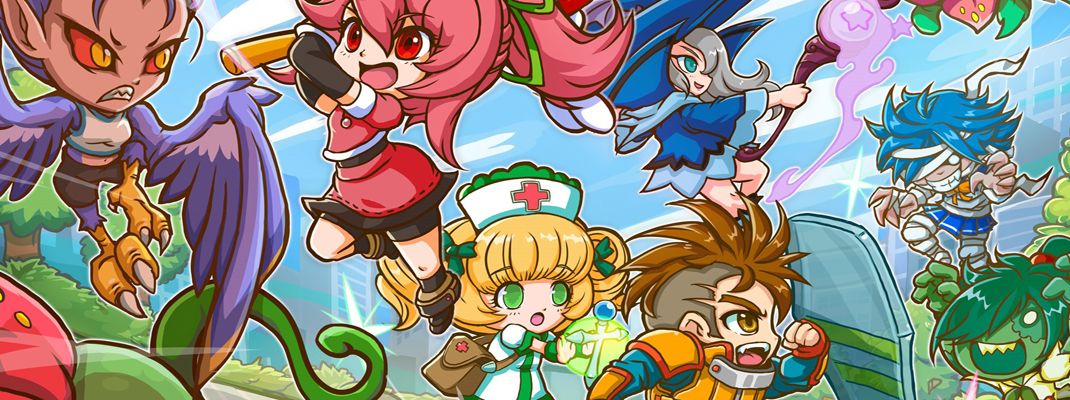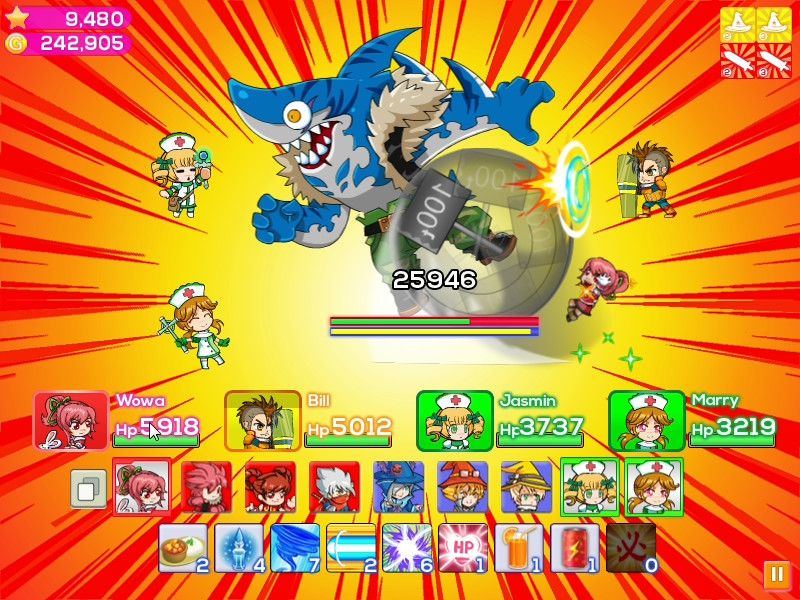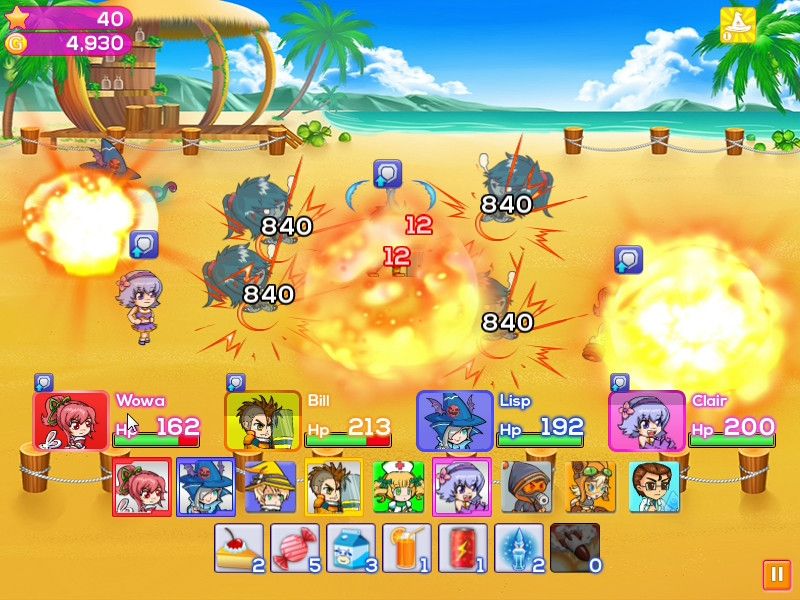Wanderjahr -- literally, “year of wandering” -- is a self-described “JRPG” from Thai developer Workyrie. To most gamers, JRPG probably brings to mind turn-based combat, extensive character development, and maybe lot of dialogue and quirky characters. Wanderjahr, on the other hand, has real-time combat that is largely out of the control of the player, character leveling but no real development, and action that is simplistic and grows tedious in short order.
There is some sort of story premise -- in the year 3000-something, the world is on the brink of being perfect and harmonious and then is invaded by monsters or evil -- that comes through poorly in translation, with a ton of awkward phrases, grammatical errors, and misspellings. Of course, if the combat was fun or the characters were interesting, a few spelling mistakes and lack of story depth would be no big deal. Your team consists of a dozen or so characters that you swap in and out of combat to make a squad of four, and of course each character brings a specialty, whether it’s melee combat with weapons, the ability to steal from enemies, healing powers, or magic casting. Between each round of combat, you can shop in the store and restock your supply of healing items like candy and pie and milk -- apparently, Workyrie hasn’t read up on current nutritional thinking -- and other items which buff your characters during battle.
During combat, the player has no direct control over the characters except to highlight which enemy should be attacked. The characters are not great at avoiding getting hit, with the nurse/healer moving to the front lines and being pummeled instead of retreating to the rear and being of use. The player sits back, clicks on jewels as enemies drop them and feeds items to the fighters to supplement the work of the healers or buffers. Characters can be swapped in and out while alive, but if they die they can’t be replaced from the bench of able-bodied team members, which makes little sense. Frustratingly, boss battles come immediately on the heels of a regular level match without any opportunity to resupply, almost guaranteeing failure.
If the combat was less repetitive or the characters had better AI or they could be developed in some significant way, the lack of direct engagement might be less of a problem. Wanderjahr is sort of a clicker game, minus the constant juicy rewards that are usually part of that genre. Characters can level up but there is no special armor or equipment to obtain and the avatars themselves never change in appearance.
No one expects great visual or graphical miracles from a tiny, indie team but Wanderjahr’s fixed 800x600 resolution looks like it stepped out of a time capsule or was ported from an early iOS game. As the developer explains on the Steam page, “The development began 5 years ago. During this time the video game industry transitioned in full force to the age of 16:9, and by then it’s too late to redevelop [sic] all the assets. We must again apologize for this.” While the characters are smoothly animated in combat they have a limited set of moves and animations, and although the presentation is colorful and bright, it’s also lacking in detail or appeal. The characters are tiny child-adults in the way of JRPGs. On the plus side there are some quirky and bizarre enemies and the game makes all sort of references to pop and game culture. If Wanderjahr’s music sounds generic, that might be because it comes from the Nash Music Library, a royalty free collection of off the rack cues.
Closing Comments:
Wanderjahr is hard to recommend. There isn’t much to it other than its combat, and unfortunately its combat is repetitive and uninteresting. In general, taking control away from the player -- even in boss battles -- is not a way to make the experience engaging. The sloppy translations and awkward English are not what brings the game down, but rather the structure of the missions, the lack of character development, and most critically, the uninteresting, spectator sport combat.



